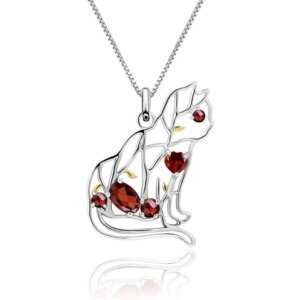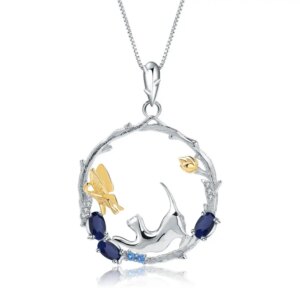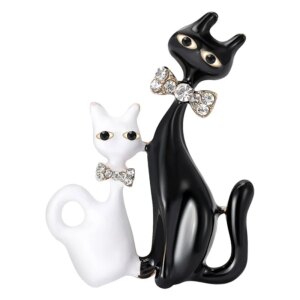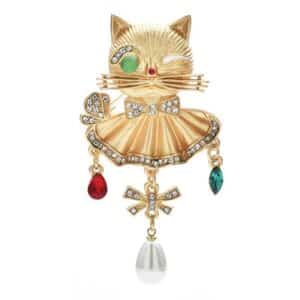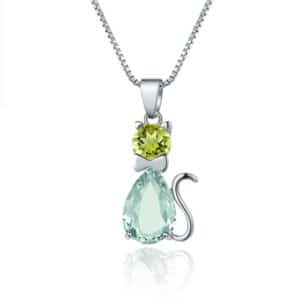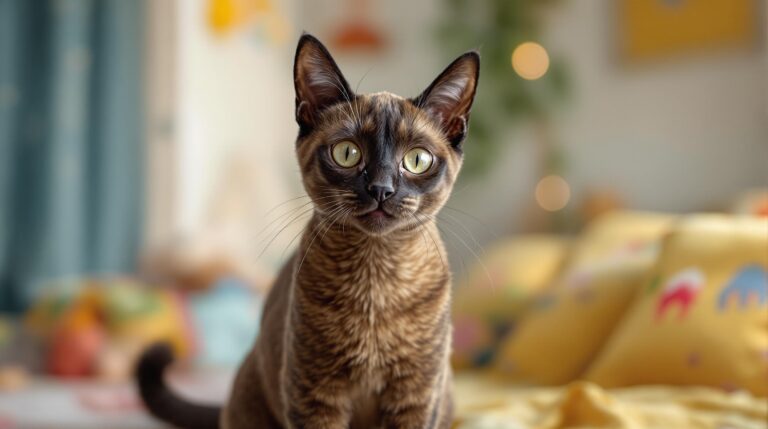Cats onions do not mix well, and at Cat Karma Creations, we understand that onions are a common ingredient in many human foods, but they can be highly toxic to cats. This article explores the dangers of onions for cats, the symptoms of onion poisoning, and how to keep your feline friend safe. By understanding the risks and taking preventive measures, you can ensure your cat remains healthy and happy. Read on to learn more about the importance of avoiding onions in your cat’s diet and what to do if your cat accidentally ingests them.
Why Are Onions Toxic to Cats
Toxic Compounds in Onions
Cats onions do not mix well due to the presence of toxic compounds in onions. One of the primary compounds is N-propyl disulfide, which can cause severe damage to a cat’s red blood cells. This compound disrupts the oxygen-carrying capacity of the cells, leading to a condition known as hemolytic anemia. Even small amounts of onions can be harmful, making it crucial to keep them away from your feline friend.
Mechanism of Onion Poisoning
Cats Onions poisoning in cats occurs when the toxic compounds in onions are ingested and absorbed into the bloodstream. The N-propyl disulfide compound oxidizes the hemoglobin in red blood cells, leading to the formation of Heinz bodies. These abnormal structures cause the cells to break down prematurely, resulting in anemia. The liver and kidneys also suffer damage as they try to process and eliminate the toxic compounds, further compromising the cat’s health.
Long-Term Health Effects
The long-term health effects of onion ingestion in cats can be severe and even life-threatening. Chronic anemia can lead to fatigue, weakness, and reduced immune function. Organ damage, particularly to the liver and kidneys, can result in chronic conditions that require ongoing medical management. In some cases, the damage can be irreversible, emphasizing the importance of prevention and early intervention.
Symptoms of Cats Onions Poisoning
Immediate Symptoms
The immediate symptoms of cats onions poisoning can vary but often include vomiting, diarrhea, and lethargy. You may also notice your cat has pale or yellowish gums, indicating anemia. These symptoms can develop within a few hours of ingestion and require immediate attention. If you suspect your cat has eaten onions, it is crucial to act quickly to prevent further harm.
Long-Term Symptoms
Long-term symptoms of cats onions poisoning can be more subtle but equally concerning. Chronic anemia can lead to weight loss, decreased appetite, and a general decline in overall health. Your cat may also experience increased heart rate and breathing difficulties as the body struggles to compensate for the reduced oxygen-carrying capacity of the blood. Regular veterinary check-ups can help identify these issues early and ensure appropriate treatment.
When to Seek Veterinary Help
If you suspect your cat has ingested onions, it is essential to seek veterinary help immediately. Early intervention can significantly improve the outcome and prevent severe complications. Your veterinarian will likely perform a physical examination, blood tests, and other diagnostic procedures to assess the extent of the poisoning and determine the best course of treatment. Do not wait for symptoms to worsen before seeking help, as prompt action can save your cat’s life. Contact a vet for more information or to schedule an appointment.
Preventing Onion Poisoning in Cats
Safe and Nutritious Alternatives
To keep your cat safe, it is important to provide them with safe and nutritious alternatives to onions. Cat-safe vegetables and fruits, such as carrots, green beans, and blueberries, can be excellent treats and additions to their diet. These foods are not only safe but also provide essential vitamins and minerals that support your cat’s overall health. Always consult with your veterinarian before introducing new foods to ensure they are appropriate for your cat. For more information on cat-themed presents, visit our website at Cat Karma Creations.
Reading Pet Food Labels
Reading pet food labels is crucial to avoid harmful ingredients like onions. Look for products that are specifically formulated for cats and do not contain onions, garlic, or other toxic substances. Ingredients are typically listed in descending order by weight, so if onions appear early in the list, it is best to avoid that product. Opt for high-quality, reputable brands that prioritize the health and well-being of your feline friend. You can find a variety of cat-friendly products on our website at Cat Karma Creations.
Creating a Safe Environment
Creating a safe environment for your cat involves storing onions and other harmful substances out of reach. Keep onions in a secure cabinet or pantry where your cat cannot access them. Be cautious with kitchen scraps and avoid feeding your cat any human food that may contain onions. Educate family members and visitors about the dangers of onions for cats to ensure everyone is on the same page and taking the necessary precautions. For more tips on creating a safe environment, follow us on Facebook and Instagram.
What to Do if Your Cat Eats Onions
Immediate Actions
If you suspect your cat has ingested onions, the first step is to remove any remaining onions and prevent further consumption. Induce vomiting if your cat has recently ingested the onions, but only if your veterinarian advises you to do so. Do not use home remedies or over-the-counter medications without consulting a professional. Contact your veterinarian immediately for guidance on the next steps.
Veterinary Treatment Options
Veterinary treatment for onion poisoning in cats may include inducing vomiting, administering intravenous fluids, and providing supportive care. In severe cases, blood transfusions may be necessary to replace damaged red blood cells and restore oxygen-carrying capacity. Your veterinarian will monitor your cat’s vital signs and perform regular blood tests to assess their condition and adjust the treatment plan as needed. Our team at Cat Karma Creations is here to support you and your feline friend every step of the way.
Follow-Up Care
Follow-up care is essential to ensure your cat fully recovers from onion poisoning. Monitor your cat’s behavior and health closely for any signs of ongoing issues, such as continued lethargy, poor appetite, or changes in urine output. Provide a quiet, comfortable space for your cat to rest and recover. Follow any additional instructions from your veterinarian, such as dietary changes or medication, to support your cat’s recovery and prevent future incidents. For more information on follow-up care, visit our website at Cat Karma Creations.
Popular Quote
“A cat has claws at the end of its paws, but a man has cats at the end of his laws.” – Unknown
Statistical Fact
According to the American Society for the Prevention of Cruelty to Animals (ASPCA), approximately 10% of pet poisoning cases involve onions or garlic. This statistic underscores the importance of being vigilant about the foods your cat consumes. Always consult with a veterinarian if you have any concerns about your cat’s diet. (Source: ASPCA, 2021)
Three Tips to Keep Your Cat Safe from Onions
- Store Onions Securely: Keep onions and other harmful foods in a secure cabinet or pantry where your cat cannot reach them.
- Read Labels Carefully: Always check the ingredients list on pet food and treats to ensure they do not contain onions or other toxic substances.
- Educate Family and Friends: Make sure everyone in your household and any visitors are aware of the dangers of onions for cats and take the necessary precautions.
Popular Questions About Cats and Onions
- Can cats eat cooked onions? No, cooked onions are just as toxic to cats as raw onions. The cooking process does not neutralize the toxic compounds.
- What are the signs of onion poisoning in cats? Symptoms include vomiting, diarrhea, lethargy, pale gums, and difficulty breathing. If you notice any of these signs, seek veterinary help immediately.
- Are all types of onions toxic to cats? Yes, all types of onions, including white, yellow, and red onions, are toxic to cats. Even small amounts can cause harm.
- Can cats eat garlic? No, garlic is also highly toxic to cats and should be avoided. It contains similar toxic compounds to onions.
- What should I do if my cat eats onions? Remove any remaining onions, induce vomiting if advised by a veterinarian, and seek immediate veterinary care. Early intervention is crucial.
Final Thoughts About cats onions
Onions pose a significant risk to the health and well-being of cats. By understanding the dangers and taking preventive measures, you can ensure your feline friend stays safe and healthy. If you suspect your cat has ingested onions, seek veterinary help immediately. For more information and to explore our range of cat-themed jewelry and gifts, visit our website at Cat Karma Creations. Follow us on social media to stay updated on the latest news and promotions. If you have any questions or need assistance, feel free to contact us at info@catkarmacreations.com or through our contact form.
Comparison Table
| Feature | Onions | Garlic | Chives |
|---|---|---|---|
| Toxicity Level | Highly toxic | Highly toxic | Moderately toxic |
| Symptoms of Poisoning | Vomiting, diarrhea, lethargy, pale gums | Vomiting, diarrhea, lethargy, anemia | Vomiting, diarrhea, lethargy |
| Common Sources | Human food, pet food, kitchen scraps | Human food, pet food, kitchen scraps | Human food, pet food, kitchen scraps |
| Prevention Tips | Store onions out of reach, avoid feeding human food | Store garlic out of reach, avoid feeding human food | Store chives out of reach, avoid feeding human food |
| Treatment Options | Induce vomiting, IV fluids, blood transfusions | Induce vomiting, IV fluids, blood transfusions | Induce vomiting, IV fluids, supportive care |
Key Points to Remember
- Understand the toxic compounds in onions that can harm cats, such as N-propyl disulfide.
- Learn the symptoms of onion poisoning in cats, including vomiting, diarrhea, and lethargy.
- Discover safe and nutritious alternatives to onions for cats, such as cat-safe vegetables and fruits.
- Explore the importance of reading pet food labels to avoid harmful ingredients like onions.
- Understand the role of veterinarians in diagnosing and treating onion poisoning in cats.
- Create a safe and toxin-free environment for your cat by storing onions and other harmful substances out of reach.


